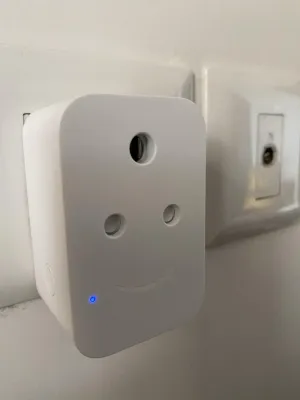Has the Centre Extended the QCO Implementation Timeline to March 19, 2026?

Synopsis
Key Takeaways
- QCO implementation deadline extended to March 19, 2026.
- Applies to electrical appliances with specific voltage limits.
- Exemptions for Micro and Small Enterprises.
- Focus on enhancing consumer safety and product standards.
- Aligns with the vision of Aatmanirbhar Bharat.
New Delhi, May 20 (NationPress) The government has announced an extension for the implementation timeline regarding the safety of household, commercial, and similar electrical appliances under the Quality Control Order, 2025.
In order to facilitate a smoother business environment, the QCO will now take effect on March 19, 2026, impacting both local large and medium enterprises as well as foreign manufacturers.
This decision, made by the Department for Promotion of Industry and Internal Trade (DPIIT), came after consultations with stakeholders led by Union Minister of Commerce and Industry, Piyush Goyal.
The ministry stated, "Reflecting Prime Minister Narendra Modi's vision of establishing a robust quality framework across industries, DPIIT has been diligently issuing Quality Control Orders (QCOs) to elevate manufacturing standards and strengthen the global standing of 'Made in India' products."
These initiatives are bolstered by the enhancement of testing infrastructure, development of product manuals, and accreditation of testing laboratories.
Considering the industry's concerns regarding implementation hurdles and existing stock, the DPIIT issued a revised Quality Control Order on May 19.
The QCO encompasses all electrical appliances designed for household, commercial, or comparable uses, with rated voltages not exceeding 250V for single-phase devices and 480V for others, including both DC-supplied and battery-operated appliances.
However, appliances already covered under separate QCOs or existing mandatory BIS certification requirements are excluded from this order.
Additionally, the QCO introduces several significant relaxations and exemptions, such as an extended timeline for Micro and Small Enterprises (MSEs), which includes a six-month extension for micro enterprises and a three-month extension for small enterprises.
It also grants exemptions for imports by domestic manufacturers aimed at producing export-oriented products; allows import of up to 200 units for research and development purposes; and provides for clearance of legacy stock (manufactured or imported before implementation) within six months from the effective date.
The QCO is a vital measure in limiting the import of substandard products and promoting consumer safety, while also enhancing the competitiveness of the Indian industry.
Through such initiatives, the government is working towards establishing a world-class, self-reliant manufacturing ecosystem under the banner of "Aatmanirbhar Bharat."
“QCOs signify a strategic effort to elevate product standards in India, positioning Indian manufacturers to excel in both domestic and international markets,” the ministry added.










